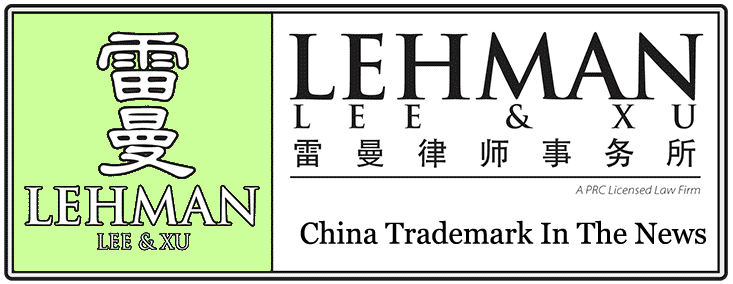Recognizing the economic importance of a well-functioning trademark system, and in view of recent high-profile trademark disputes such as the widely publicized iPad dispute which was reputedly settled for a payment of about U.S. $60 million, the Chinese government has been considering a further revision of the Trademark Law which was open for public consultation through January.
The draft amendment addresses some important issues for applicants. It seeks to make trademark registration faster and more convenient, increases punishments for infringement, includes additional provisions to prevent unfair competition, and extends protection to additional types of non-traditional marks.
A common complaint from foreign and domestic parties is that Chinese law does not provide adequate remedies for intellectual property infringement. The new draft law would raise the ceiling for fines imposed on trademark violators in circumstances where the financial losses and gains from the infringement cannot be determined. This is a significant issue because the absence of a discovery process under Chinese law means that it can be very difficult to establish the amount of any losses to the trademark owner or amount of any illegitimate profits made by an infringer. Repeat infringers and those who intentionally assist an infringer would be subject to increased penalties. The amendments would also permit awards of punitive damages.
The trademark registration process currently takes up to three years to complete and requires separate filings to obtain protection in each class of wares and services. The proposed amendments are intended to shorten the registration process to less than 10 months, and would allow a single application to be filed to encompass multiple international classes. This would make the registration process substantially cheaper.
The amendments would also introduce new obstacles to trademark squatting and malicious trademark registrations and give additional protection to the owners of unregistered but renowned marks. In a further effort to block unfair competition, the amendments would also limit the grounds on which a third party may challenge pending applications, and would limit the range of parties who are entitled to make such a challenge. These changes are all intended to block unfair trading practices such as bad faith applications to register an existing trademark and vexatious challenge proceedings.
Finally, the amended law would permit sounds, smells, colors and moving objects to be registered as trademarks, if they satisfy the other requirements for registration.
There are more than 10 million trademark filings on record with the Chinese State Intellectual Property Office of China and more than seven million of these are already registered. With the continuing growth in the economic importance of the PRC both as manufacturing location and as a consumer market, it is increasingly critical for intellectual property owners to take proactive steps to protect their position in the Chinese market.
MBM provides advice on all areas of intellectual property, including advice on the registration, enforcement and defense of international rights. Please contact us for further information.
http://www.canadaipblog.com/2013/01/proposed-changes-to-chinese-trademark.html
|

